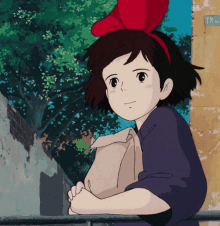I remember someone showing me a pin they found on Pinterest that read: "Crime and Punishment is my comfort book". Beneath it, several comments share the same sentiment. As someone who has read numerous Dostoevsky novels, including Crime and Punishment I found such a collective sentiment confusing and quite frankly, concerning. Of all his novels, Crime and Punishment, the acclaimed literary masterpiece, stands out to me as the book filled with the most racist rhetoric, inherent misogynistic language, and Tsarist ideology.
And yet for many readers, especially those on social media platforms like Pinterest, it's a comfort book, a text that provides solace to someone in a time of hardship, a text someone relies on. Is such a blind affection for a book ever justifiable especially given the circumstances of Crime and Punishment in particular? How far are we willing to go to uphold "separate the art from the artist" when the artist has created the art and imbued it with their prejudices?
Let us slide into your dms 🥰
Get notified of top trending articles like this one every week! (we won't spam you)Who Is Dostoevsky?

Image Credit: Vasily Perov from Wikipedia Commons
Before diving into the specifics of how Dostoevsky's language perpetuates inequality, I want to give a brief overview of the man himself. I find it essential to know about an author before reading any of their works whether be novels, poems, or short stories because their views, biases, and life experiences often influence their craft. Dostoevsky was born to a retired military surgeon who treated charity cases while maintaining a private practice and a cultured woman from a merchant family, indicating that while he was well-off, he was not part of the wealthier, gentry class.
This was corroborated by Dostoevsky himself, who pointed out that other authors of his time, like Leo Tolstoy, were part of the landed gentry—people who earned income from owning land. This wealth gave them a more romanticized, unrealistic view of life especially when considering the relationship between class and society. In contrast, Dostoevsky was never afforded this level of privilege; however, it is important to recognize that he was certainly more privileged than the working poor.
Dostoevsky's early life found him in the military as a sub-lieutenant, but he was quick to abandon his position to pick up the pen. Almost immediately, Dostoevsky was considered a new talent in Russian literature, with his early novels such as White Nights and The Double both of which drew attention for their deep psychological insight.
His characters, often flawed, misguided, and full of contradictions, come to life in a way that makes readers feel as though they are witnessing human beings, but also in a broader sense, themselves who go on this journey to clarity or closure. Dostoevsky's prominent legacy would even spread beyond Russia, inspiring existentialists like Albert Camus, philosopher Friedrich Nietzsche, and even the dystopian genre, which would later shape George Orwell's 1984.
However, no matter the literary genius of Dostoevsky, it remains imperative that we, collectively, recognize the troubling aspects of his writing.

Take the Quiz: What Spring Movie Should You Watch Based on Your Personality?
Figure out the perfect spring movie to watch based on your mood, preferences, and personality traits!
Women in Crime and Punishment

Image Credit: Nikolay Karazin on Wikipedia Commons
First, let us start with a provocative statement: Dostoevsky was a misogynist.
In simply assessing Crime and Punishment, a recurring archetype emerges: the martyr. Sonia Semyonova Marmeladov is a young woman who is forced into prostitution to financially support her family. Anytime she is brought up in the novel it is because of Raskolnikov's link to her, indicating her subjugated position to him, not only because he is the protagonist of the novel, but also because she is a woman.
While Dostoevsky imbues Sonia with virtues of loyalty and selflessness, these qualities serve a broader, regressive narrative where women exist solely as instruments for male salvation. This portrayal echoes a broader societal view that women are defined by their relationships with men, not as autonomous beings with their own desires, needs, and ambitions.
Dostoevsky’s emphasis on female "redemption" suggests that women’s primary purpose in life is to serve men’s moral or emotional needs, thereby erasing their intrinsic worth as individuals. Sonia’s role as a martyr is not unique within Dostoevsky’s work.
Dounia, Raskolnikov’s sister, who is also imbued with similar virtues, also sacrifices herself for the sake of her brother, reinforcing the trope of women as self-sacrificial figures. This concept of women as "redeemers" or "Christ-like saviors" ultimately reduces their existence to an accessory to male characters' development, perpetuating the idea that a woman’s value is contingent upon her capacity for self-sacrifice.
Racism in Crime and Punishment
This aligns with Dostoevsky's rigid beliefs about who deserved respect and dignity, which he often reserved for Orthodox Russian men. Crime and Punishment in particular corrobrates his beliefs as the novel contains several subtle yet demeaning remarks regarding various religious and ethnic groups.
One specific telling moment occurs when a side character describes the pawnbroker, Alyona Ivanovna, to Raskolnikov and likens her wealth to that of a Jewish individual. While Alyona is not explicitly identified as Jewish, the negative connotations of greed and moneylending reflect long-standing, anti-Semitic stereotypes.
Other ethnic groups Dostoevsky showed outward hostility towards through xenophobic language included but were not limited to German individuals and Polish individuals. For example, when Raskolnikov describes the physical features of Mr. Luzhin, the fiancé of his sister Dounia, he associates his curly hair as being a “German” feature which he notes is repulsive and thus undesirable in comparison to “Russian” features.
Connecting the Dots: Dostoevsky and Russian Exceptionalism

Image Credit: Nicolae Vermont on Wikipedia Commons
Here, his sense of Russian nationalism really comes through as Russian people specifically men are racially, culturally, as well as religiously superior. Dostoevsky’s obsessive national pride and his intense devotion to Russian Orthodox Christianity led to his advocacy for Tsarism, a form of autocracy that sought to consolidate power under a single, divine ruler as the Tsar not only was the political head of the country but was also the leader of the Orthodox Church.
Many depict Dostoevsky's Tsarism as the "safe option" he had from the disastrous greed of capitalism or the chaotic Marxists and socialists that were supposedly running amok. However, the brutality that the Tsar was responsible for complicates these matters. For Dostoevsky who was ethnically Russian, a man, and somewhat middle class, he did not feel the harsh brunt of the burden that many working-class individuals felt even when serfdom was officially outlawed or the violent oppression faced by many minority groups.
An example is the process of Russification which was intent again on consolidating power by making the Russian population uniform and wiping out traces of various cultures. Dostoevsky’s willing approval of this system through his support for the Tsar underscores his deep conservatism and ties to an extreme version of Russian nationalism or in other words, Russian exceptionalism.
The Intellectuals and Dostoevsky

Image Credit: Henry Be On Unsplash
Despite the gravity of these issues, they are rarely addressed in academic discussions of Dostoevsky's literary genius, often emerging more in public discourse. In today’s social media era, where misinformation spreads rapidly and opinions solidify into false facts, the focus on Dostoevsky as a cornerstone of literature and as a figure of intellectual prestige has become more pronounced. This trend mirrors the rise of “aesthetic reading,” where people, particularly younger audiences, seek to present themselves as intelligent through the consumption of classic literature.
The allure of movements like Dark Academia capitalizes on this, appealing to youth while exploiting their developing critical thinking skills. This brings us to a larger issue: the divine-like reverence for books without considering their ideological underpinnings. I see this phenomenon in my daily life, where many of my friends often name-drop books by classic authors as a way to affirm their intellectual credibility.
On a more technical level, these ideas fall under the overarching concept of intellectual status which can be linked to what I like to call intellectual exceptionalism except taking it from an individual level, meaning one’s intellect is exceptional to that of others, and transferring it to a broader class where the intellectual class is exceptional to everyday people. The intellectual class, the “educated” class is the class that passes down knowledge which is to go unquestioned to the masses.
With Dostoevsky, this phenomenon can be observed as he is often considered of this “intellectual class” with many young teens and even academics willingly to blindly worship him despite his concerning actions and ideologies.
Ending Note
I encourage you all, the readers of this article, if you’ve made it this far, that is, to think more critically about the authors you admire and to recognize that they should not be placed on a godly pedestal for they too are capable of being flawed and irrevocably wrong. After all, isn’t that what connects us all?



















